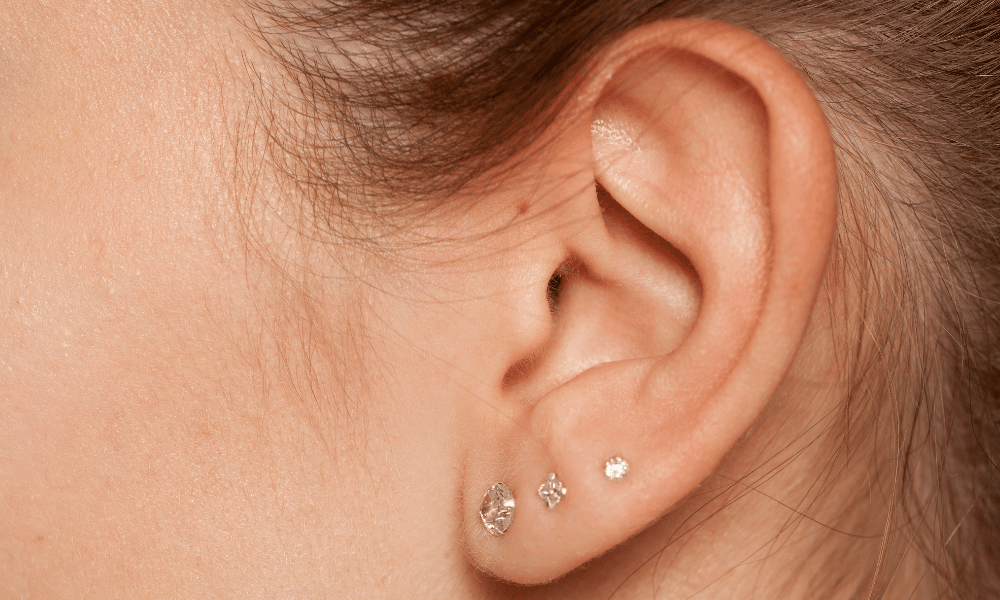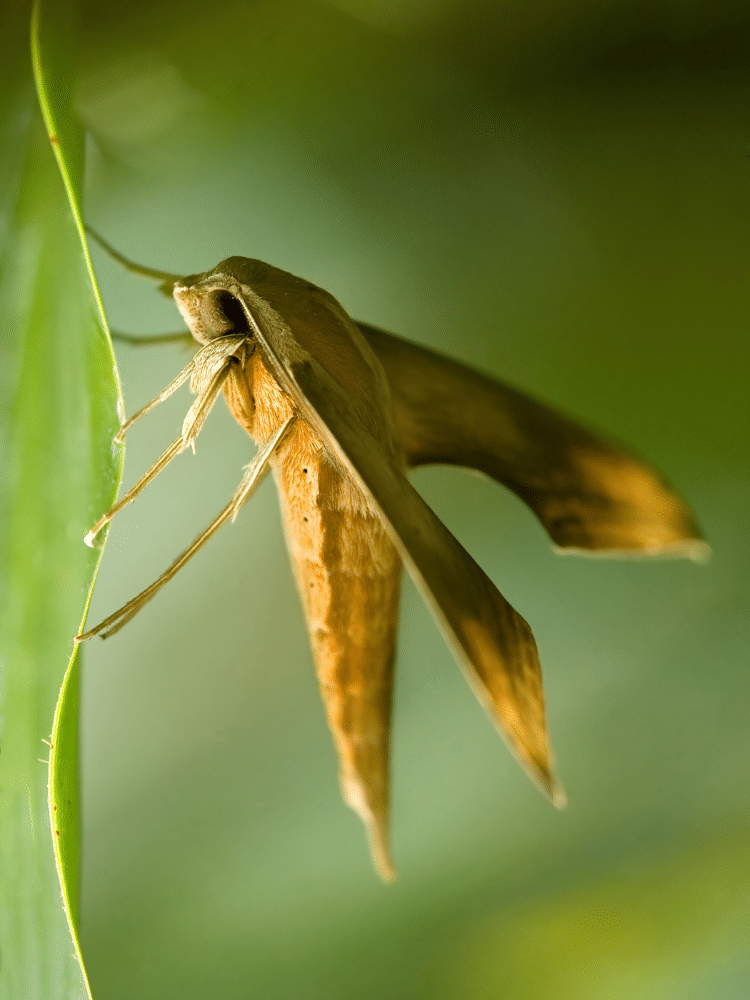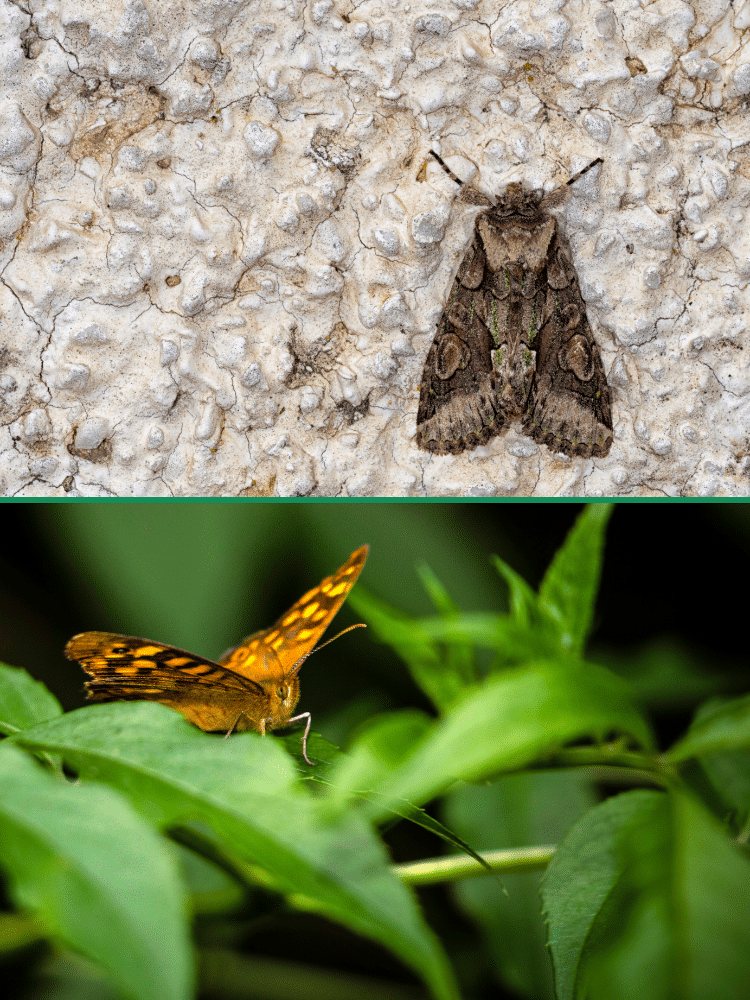We have all heard horror stories about insects crawling into our ears and laying eggs inside them while we sleep. The thought alone is enough to make people cringe. But, does this really happen? Do moths lay eggs in your ears?
While theoretically, some smaller species of moths could make it into your ears, there is no reason to believe that moths will crawl into your ears and lay eggs.
Where Do Moths Lay Eggs?
Moths prefer to lay their eggs in places with an abundance of food sources that the larvae can eat once they emerge. A moth will not seek out dark, damp, or small places as they are not ideal places for the larvae to live.
The most common places where moths will lay their eggs will be on the underside of flower leaves or in trees full of fresh green leaves.

Another concern for moths when deciding where to lay their eggs is the presence of predators.
Moths view humans as predators. We are much larger than they are and moths do not like the idea of humans interfering with their eggs or larvae.
The last place a moth would ever consider laying eggs would be in a human ear!
Moths Lay Eggs Near Food
Moths want to give their larvae the best chance of survival once they hatch. This is why moths will lay eggs near a suitable food source. Your ear is not going to provide much in the way of food, is it?
Do Moths Go In Your Ears at Night?
Moths do not go into your ears at night. Moths are attracted to light and will not purposely go into darkened spaces.
While it is technically possible for a moth to go into your ear, it is very rare. Many doctors only see about 5 cases of insects in human ears, including all insects.
It is more likely that a crawling insect, like a cockroach or a spider, would enter your ear.
But before you start having nightmares, know it is an incredibly rare occurrence for any insect to enter your ears.
The chances of these bugs crawling into your ears are increased when you sleep outside, where there are plenty of bugs.
If you are camping, be sure that your tent is sealed off from the outside world as best as possible and avoid sleeping in open outdoor spaces.
You can also get bugs in your ears while standing, walking, or running outside. Many bugs are very quick, and when you suddenly move in front of them, they can accidentally land in your ears.
Usually, your ears are too small for a moth or any other creature to crawl into. They prefer to stay in open areas full of food sources.
How To Keep Moths Out Of Your House
Even though moths probably won’t go into your ears, they can cause other problems in your house. Adult moths are usually just annoying as they repeatedly fly around and hit your lights— tink, tink, tink!
However, moth larvae have been known to eat through clothes made from wool or cotton and even eat through bread and pasta in pantries.
So, whether you are looking for a way to reduce your nightmares of moths in your ears, or trying to protect your wool suits, here are a few ways to keep moths out of your house.
- Moths hate the smell of cedar. Make a cedar oil spray diluted with water and spray around your home as a repellent.
- Create small sachets filled with lavender, bay leaves, cloves, and rosemary herbs. These herbs work just as well as cedar at deterring moths and other insects. You can use dried or fresh herbs. These small sachets will also make your clothes smell wonderful!
- Cover a sticky trap with moth pheromones. They will get stuck and not be able to get off. This works well if you are sure you only have adult moths in your home.
- Keep your home free of dust. Moths like to lay their eggs in dusty spaces, so prevent the opportunity by keeping the places clean and well dusted — bonus points for using a cedar-infused dusting spray.
- Put any clothes you think may have eggs in the freezer. Keep them in the cold for at least 24 hours to kill off any larvae. Then throw them in the wash.
- Wash the clothes with hot water. This will kill any remaking eggs or larvae that may have survived the initial freezing. If you are really nervous about any remaining eggs or larvae—
- Use vinegar in the wash or pre-soak the clothes in a diluted vinegar and water solution.
- Call an exterminator or pest control service if the moths have taken over or are persistent; call a professional to come and help. They may be able to find the source of the problem and help eliminate the moths. They also tend to make it routine.
Of course, we want to encourage wildlife and moths are part of that but that doesn’t mean we want them inside our homes.
Summary
Although it would be physically possible for a moth to come along and lay eggs in your ears if they’re small enough, the chances of this happening are hugely slim.








Ok..a small moth DID GET INTO MY EAR
MY EAR IS BLEEDING AFTER IT DIED AND I DUG IT OUT
NOW WHAT DO I DO
I also just had a moth stuck in my ear. It flew directly into it! Luckily for me my housemate pulled it out with tweezers but probably not before the bloody thing shat itself 💩